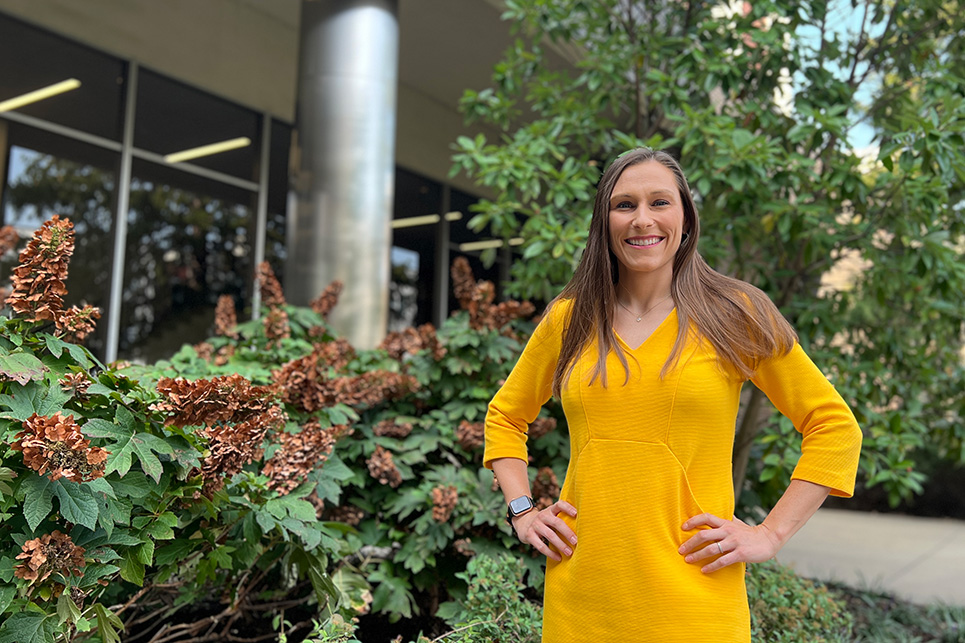Sep. 19, 2024

Story by Ryan Gauthier, rjgauthier@health.missouri.edu
While survivorship rates are on the rise for individuals who are diagnosed with a stroke, researchers at the University of Missouri are working to improve long-term outcomes for them.
Anna Boone, an assistant professor with the Department of Occupational Therapy in the Mizzou College of Health Sciences, recently received $2.8 million from the National Institutes of Health (NIH) for work designed to help stroke survivors return to their normal lives.
“Our medical system is great at addressing the acute needs following a stroke, but there’s a significant gap when it comes to long-term care,” Boone said. “This project is motivated by the need to address the chronic consequences of stroke, which have traditionally been ignored outside of the rehab community.”
According to the Centers for Disease Control and Prevention, the prevalence of stroke in the United States has increased by nearly 8% over the past decade. Stroke remains a leading cause of death in the U.S., and those who survive frequently face long-term disabilities.
Over the next five years, Boone will work with a team of Mizzou colleagues to explore ways to help stroke survivors improve their confidence, daily activities and overall health. Department of Occupational Therapy colleagues Tim Wolf and Rachel Proffitt are also involved in the project, in addition to Suhwon Lee with the Department of Statistics at MU. Colleagues at the University of Washington include co-principal investigator Danbi Lee.
The study will test a virtual self-management intervention tailored to the needs of the stroke population, Improving Participation After Stroke Self-Management Program-Rehabilitation (IPASS-R). The team will compare the stroke-specific program to a general health-focused program to see which treatment is more effective in boosting confidence and participation in home, work and community activities. These outcomes will be evaluated through self-report measures and a complex set of in-home sensors.
The study builds on prior research that shows self-management can improve outcomes like cardiovascular health, but it will focus on more meaningful, everyday life outcomes.
“Our medical system is focused on getting you better in the short term, and the long-term effects are often overlooked, partly due to insurance coverage,” Boone explained. “Therapists only have a limited number of sessions, so they focus on the most immediate needs like strength and daily living activities. But there’s so much more to life than just dressing and bathing.”
